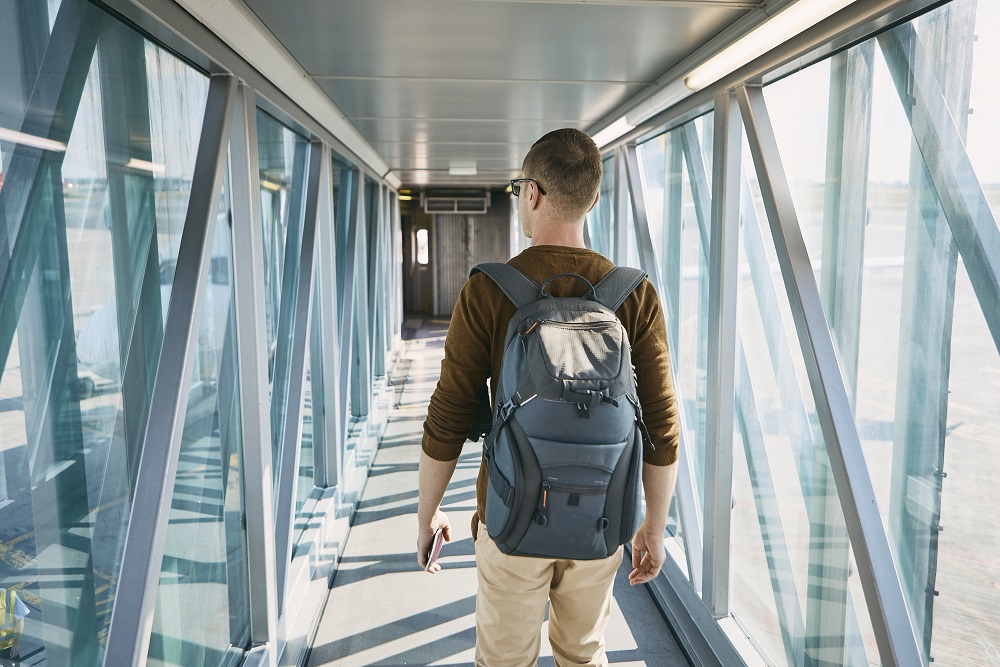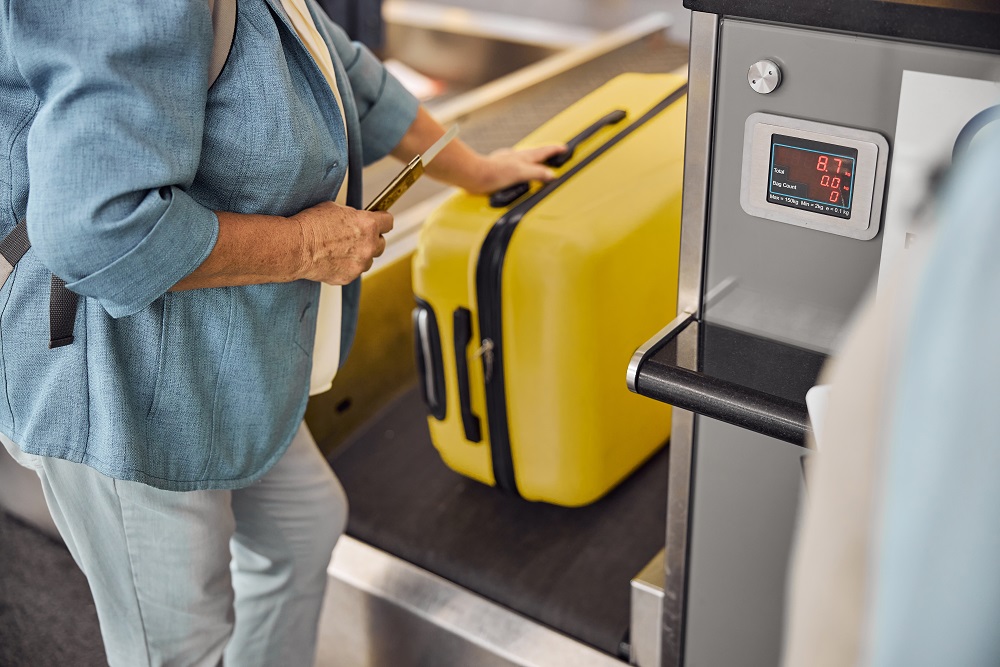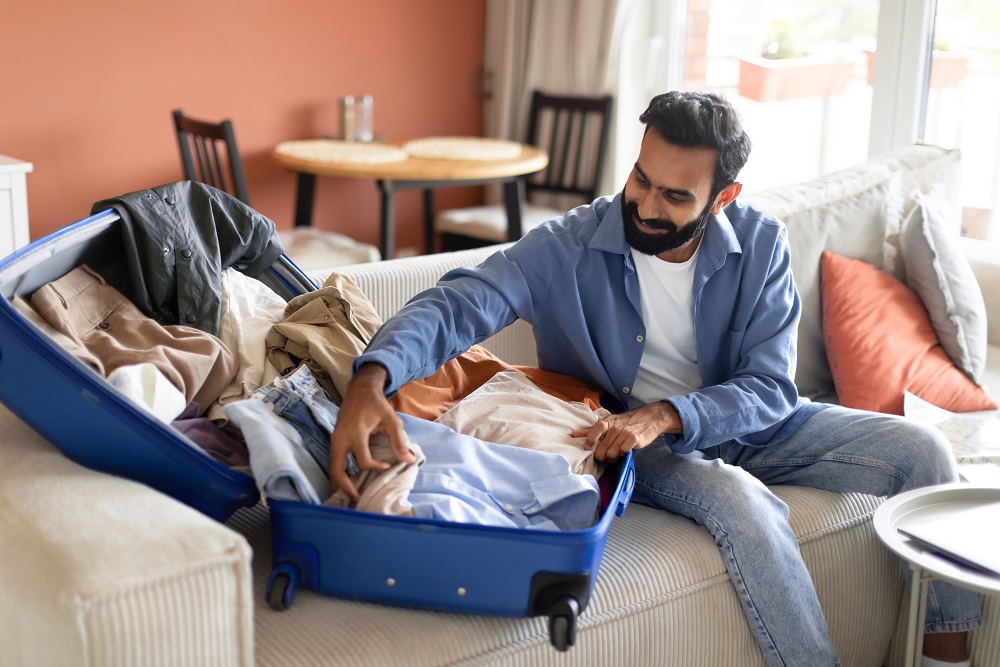For most business travelers, baggage rules are an important part of travel planning. They influence not only the amount and weight of luggage they can take with them, but also the cost and comfort of their trip. It is therefore crucial to know the specific regulations of each airline and plan accordingly.
By finding out in advance what baggage allowances are allowed and packing your bags accordingly, you can avoid unpleasant surprises at the airport and make your trip go more smoothly. In addition, thanks to good preparation, business travelers can avoid fees for excess baggage and perhaps even board faster. Therefore, it is worth taking the time to thoroughly get to know the baggage regulations before traveling and to ensure that you are prepared.
Hand luggage rules
First things first: your hand luggage. It will be by your side throughout the flight and should include everything you need during the trip, from a laptop, to snacks and a book. For short business trips, you may decide to only take carry-on luggage.

Different airlines, different rules
It’s important to note that carry-on baggage rules may vary depending on the airline. While some have generous regulations, others are much stricter. It is therefore advisable to check the current hand luggage regulations of the respective airline before departure in order to avoid unpleasant surprises.
For example, Southwest Airlines allows a personal item and a carry-on measuring 24 in x 16 x 10 in as well as a small handbag or laptop bag. On the other hand, United’s luggage rules depend on the fare you choose. Those booking Basic economy have only a small 17 x 10 x 9 inch personal item included, and have to pay for carry-on or checked luggage. It’s important to figure in the cost of checked luggage and what each airline includes in order to evaluate which airline is right for you.
Pack carry-on luggage like a pro
In order to pack hand luggage optimally, efficient planning and use of the available space is crucial. For example, you can roll up clothes instead of folding them to save space and avoid wrinkles. Additionally, small items such as socks and underwear can be tucked into shoes to create additional space. Travel essentials like foldable travel pillows or collapsible water bottles take up little space but are incredibly practical.
It is also advisable to keep important documents such as passport and airline tickets in a separate bag or special compartment in your carry-on luggage so that they are always at hand. If you have liquids with you, make sure to only carry travel-sized containers (up to 100 ml) in your hand luggage. These must be stored in a transparent zip lock bag. It’s best to prepare this in advance so that you can go through airport security quickly.

read more
Another trick is to carry several utility bags or organizers in your carry-on to store and easily find smaller items like chargers, headphones, and makeup. It is important to also pay attention to the weather conditions at your destination and pack appropriate clothing or accessories in order to be well prepared when you get there.
Make sure you don’t have any prohibited items in your carry-on luggage to avoid delays or security issues at the airport. Keep in mind that certain items, such as sharp objects, may not be allowed or may need to be specially packaged.
Checked baggage
Now let’s talk about checked baggage when traveling by air. Here you can store everything you need during the trip, from suits to shoes and souvenirs. Here too, different rules apply depending on the airline. Some allow generous exemption limits, while others are more strict. It is therefore advisable to check the current regulations of the respective airline before departure in order to avoid stress at the airport.
If you have checked baggage, you may need to allow extra time to wait in line at the airline counter and check in your baggage. It is advisable to arrive at the airport at least two hours before departure to allow enough time for the check-in process, security and boarding.
Don’t forget to keep important documents and essential items handy in your carry-on luggage. This way you can make sure your trip goes smoothly and you have everything you need for your flight.
When packing your checked luggage, efficient use of available space is crucial. Use organizers and packing cubes to neatly store clothes and other items and save space. You might also consider transporting luggage such as suits or dresses in special garment bags to prevent wrinkles.

Pro tip
If you get to the hotel room and notice that your clothes are still wrinkled, there is a simple trick to get rid of the wrinkles. Hang the affected clothing in the bathroom and close the door. Run hot water briefly to fill the room with steam. The high humidity in the bathroom will help the wrinkles smooth out. After a while, your clothes should be significantly less wrinkled and you can wear them easily without having to iron.
How do baggage rules differ on budget airlines compared to national airlines?
The differences in baggage rules between budget and domestic airlines are a common topic of discussion. The differences are usually quite notable and must be taken into account when planning your trip. Low-cost airlines often entice you with extremely affordable ticket prices, but customers are often faced with high baggage fees later.
These additional costs can significantly increase the final price of air travel. In contrast, national airlines often have more generous baggage policies, and baggage prices are included in the ticket price. This usually allows travelers to carry more luggage without having to pay additional fees. There are also differences in travel classes such as Premium and Premium Economy.
It’s important to find the right balance between cost and comfort when traveling for business. When deciding between a low-cost airline and a national carrier, various factors should be considered. For example, choosing a low-cost airline with lower ticket prices might be attractive for short business trips, as checked baggage is often not required. On the other hand, a national airline with more generous baggage allowances may prove to be a better option, especially for longer trips or when special equipment needs to be taken with you.

5 Fun facts about baggage allowances
1. Sharing is better
Did you know that some airlines allow you to share your baggage allowance with your travel companion? Exactly! If you’re traveling with a colleague who didn’t pack much, you might be lucky and get extra space for your souvenirs.
2. Baggage detectives are a real thing
Have you ever wondered what happens to lost luggage? Well, as it turns out, airlines have entire teams dedicated to tracking down lost luggage and reuniting it with its rightful owner. This is often real detective work!
3. Check before you travel with unusually-shaped items
Airlines often have specific policies for unusually shaped items. For example, before you take camera equipment, presentation materials, like projectors or materials for a convention stand on board, please check the rules to avoid unpleasant surprises. Sometimes it is necessary to book an additional seat for bulky or delicate items, especially fragile equipment that cannot be stored safely in the cargo hold.
4. Luggage is a science
There’s actually a science behind how airlines calculate baggage fees. Factors like route, class of service, and even the time of year can all play a role in how much you’ll pay to check your bags.
5. Loyalty pays off
Some airlines offer unique benefits for frequent flyers, such as waived baggage fees or priority baggage handling. So if you find yourself traveling for work often, it might be worth joining a loyalty or frequent flyer program to reap the rewards.
Master your next business trip with ease
In summary, baggage rules can play an important role in business trips and it is crucial to know them in advance to avoid unpleasant surprises. From carry-on baggage regulations to checked baggage rules to special rules for unusually shaped items, there are many aspects to consider across different airlines. With our tips and tricks you are now well prepared to master your next business flight with ease.

